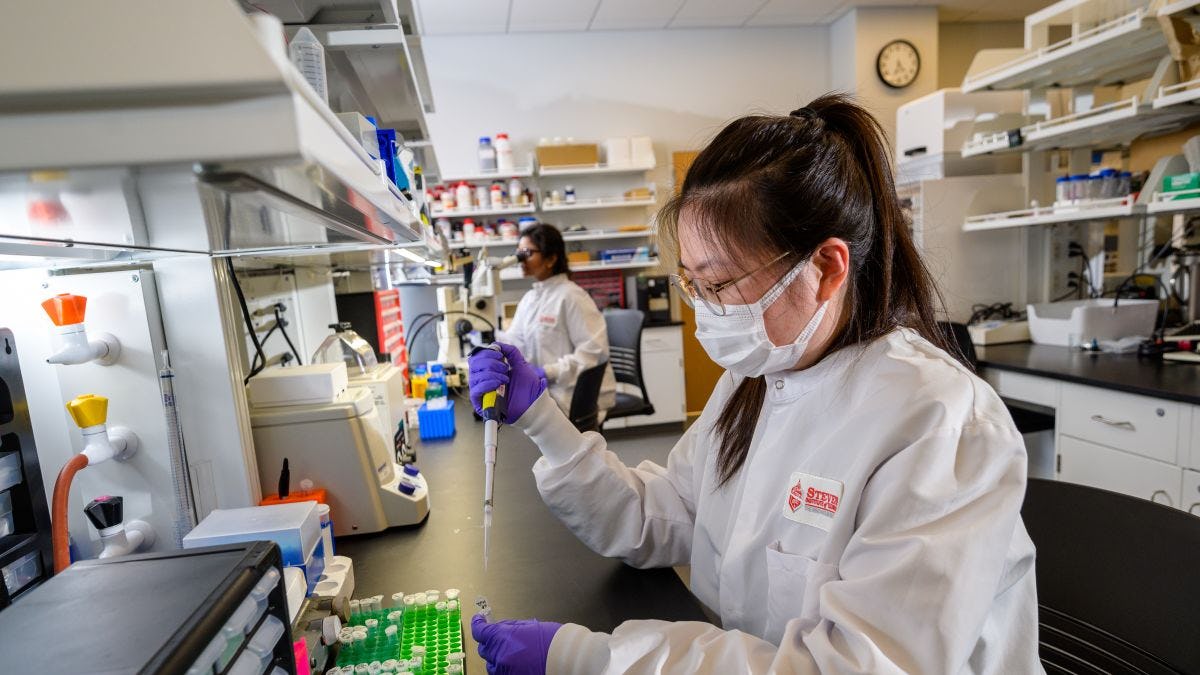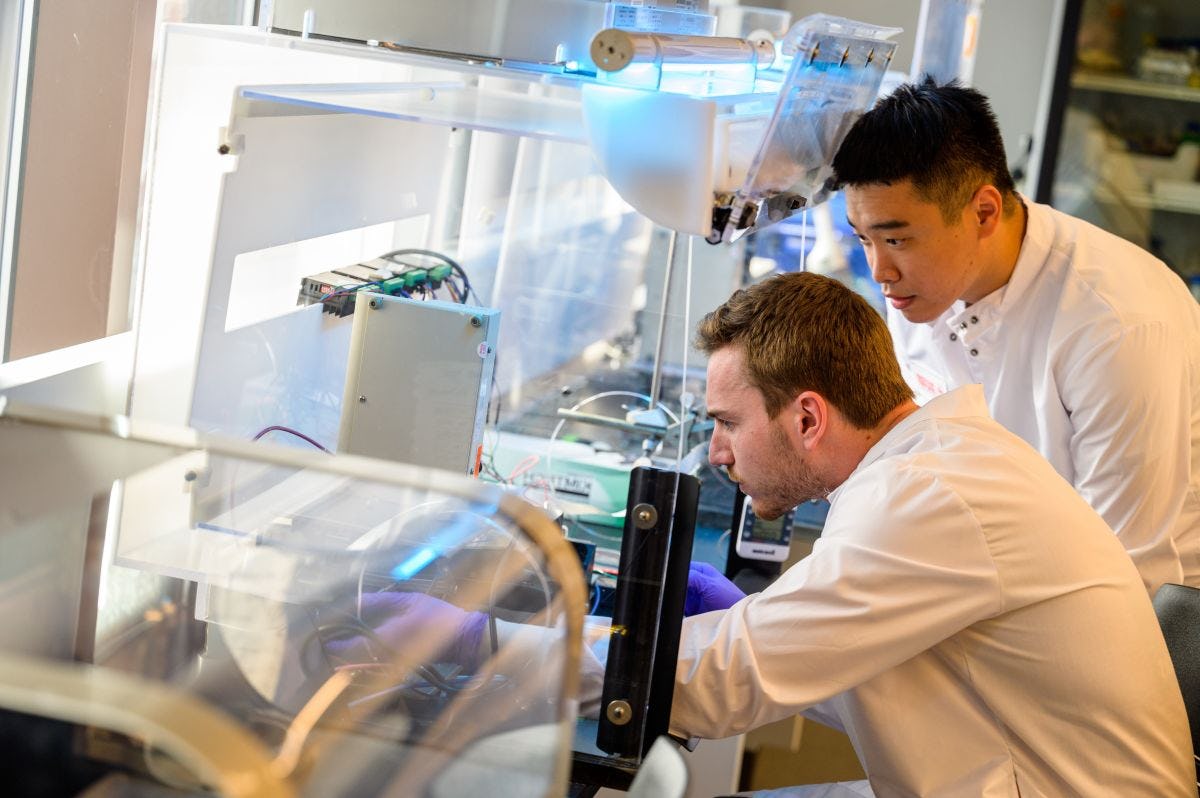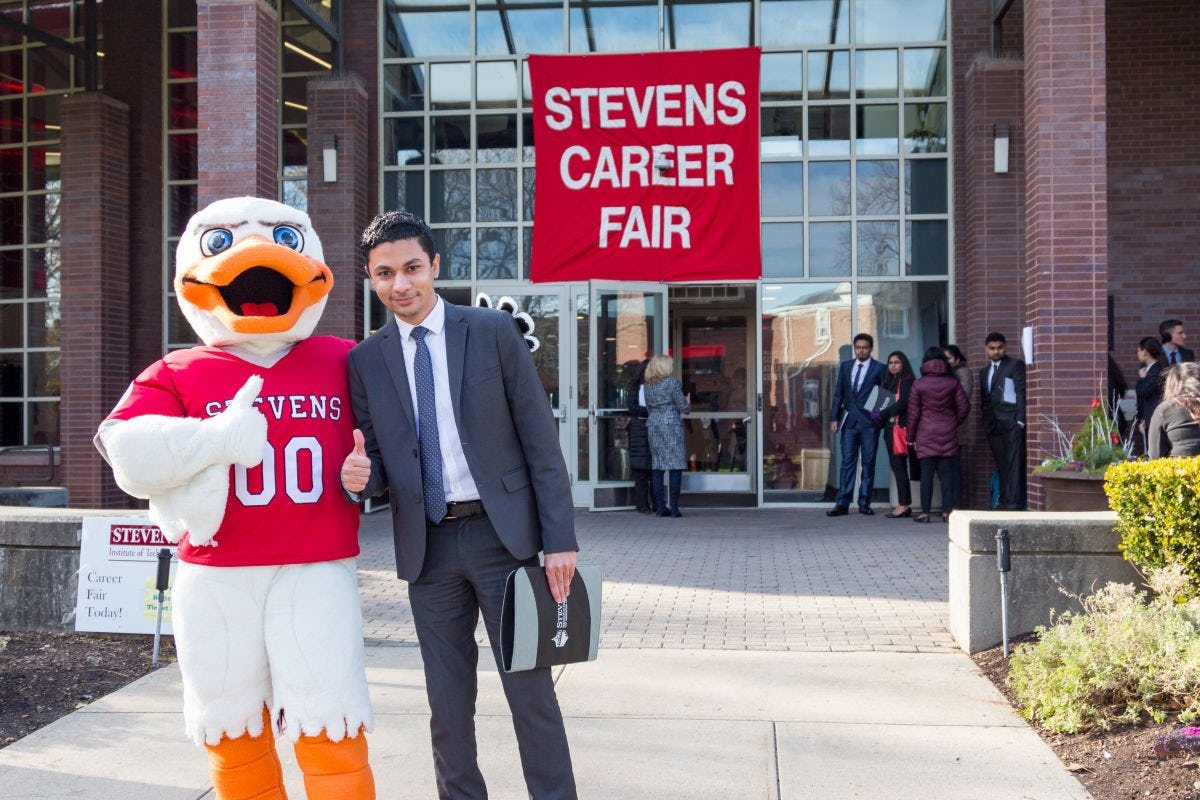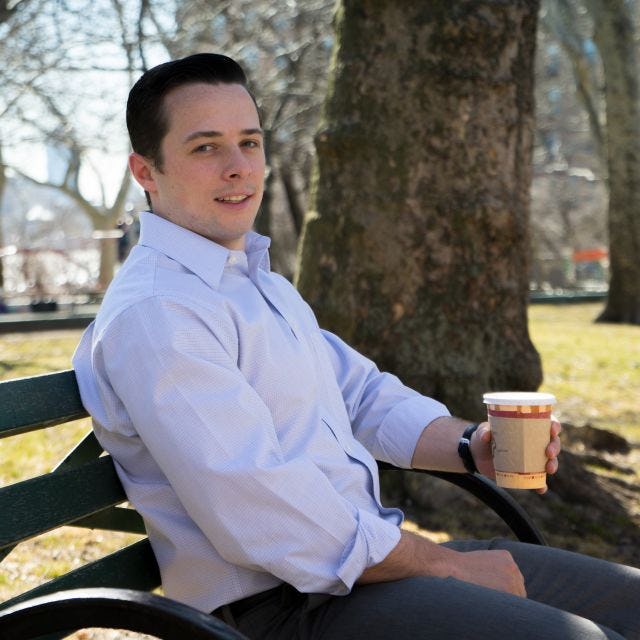
Bachelor's Degree in Biomedical Engineering
Learn to apply design and analysis techniques as you engineer solutions to problems at the interface between physical and biological systems in the biomedical engineering bachelor’s program.
Biomedical engineers design medical devices and instruments that improve patient quality of life and help doctors diagnose and treat diseases, like artificial hearts, pacemakers and defibrillators, imaging devices, prosthetic limbs, and more.
In the biomedical engineering program at Stevens, you’ll learn the fundamentals of math, science, engineering, biology, physiology and the interactions of engineering materials with biological surfaces.
Our program’s design-based curriculum includes a capstone senior design project where you’ll work with a team to design, build and test a real medical device. You'll also get extensive laboratory experience working alongside faculty on cutting-edge biomedical engineering research in areas like biorobotics, brain-machine interface, spinal implants, lung mechanics, emergency medicine (with Hoboken University Medical Center), and tissue engineering.
Concentrations
Biomaterials and Tissue Engineering
Biomechanical Rehabilitation
Neuroengineering and Biomedical Imaging
The Stevens Advantage: Hands-On Learning, Real World Experience
At Stevens, you’ll learn to think like an engineer. Our design-focused curriculum features a hands-on course every semester that will instill you with broad, foundational knowledge, the complete fundamentals of engineering, and entrepreneurial thinking. Learn more about what makes an engineering education from Stevens a unique experience:
The Design Spine: a unique, design-focused, hands-on course every semester that incorporates entrepreneurial thinking and experiential learning, culminating with Senior Design, a team capstone project working on prototypes for real business problems, potentially in collaboration with a real company
Innovation Expo: an exciting design and entrepreneurship competition where students showcase their senior design prototypes and pitch business ideas
Engineering Cooperative Education Program: nearly 30% of all engineering students participate in Stevens’ Cooperative Education Program where you get on-the-job experience working for real companies
State-of-the-Art Research Labs and Facilities: build, tinker and test your designs in Stevens' MakerCenter, Prototype and Object Fabrication Lab, or numerous other research facilities
Undergraduate Research Opportunities: our research-oriented curriculum gives you in-the-lab experience while you're still an undergraduate student
Hands-On Biomedical Research
At Stevens, you have the ability to join research groups with students at a variety of levels of experience, and outstanding faculty so you can learn cutting-edge technology as a team, just like in the real-world. In our state-of-the-art research labs and facilities, you'll have the opportunity to engage in experiential learning in the following areas:
Biomaterials
Biomedical Imaging
Biomechanics and Rehabilitation
Neural Engineering
Tissue Engineering
Drug Delivery
Medical Devices and Instrumentation
Lung Mechanics
Translational Biomedical Engineering
More opportunities for Stevens undergraduate students include:
Double count undergraduate course credits toward a graduate degree and earn your master's faster – in just five years through Stevens' Accelerated Master's Program >
See what it's like to be a biomedical engineer at Stevens by visiting the links below.
An ABET Accredited Program
The Bachelor of Engineering in Biomedical Engineering program is accredited by the Engineering Accreditation Commission of ABET, https://www.abet.org, under the commission’s General Criteria and the Program Criteria for Bioengineering and Biomedical and Similarly Named Engineering Programs.
Putting You on Track for Professional Success
The biomedical engineering bachelor’s program develops in-demand knowledge and skills to put you on track for career success in the biotech industry, to enter medical school, or to continue your education in graduate or professional school. Career opportunities include:
Biomedical Engineer
Product Development Engineer
Clinical Engineer
Research Scientist
Quality Engineer
Medical Technology Developer
Potential hiring organizations include companies like: Becton Dickson (BD), Deloitte, Flowonix Medical, GE Healthcare, Johnson & Johnson, Stryker Orthopedics, Zimmer Biomet, Integra Life Sciences, MTF Biologics and more
A Tech Forward Education
Undergraduate Programs Facts & Statistics
Related Programs
Bachelor's Degree in Biology
The biology bachelor’s program develops in-demand knowledge and skills to put you on track for career success, whether it's graduate, medical, dental, veterinary, physician’s assistant, or physical therapy programs.
Bachelor's Degree in Chemistry
Research with some of industry’s brightest minds as you prepare for a career in one of the most applicable fields of science.
Bachelor’s Degree in Chemical Engineering
Become one of tomorrow’s technological leaders in industrial chemical processes with a chemical engineering bachelor’s degree from Stevens.






